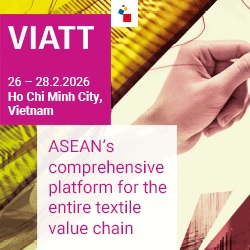The Ministry of Industry in Indonesia has unveiled plans to disburse a substantial budget of IDR 52 billion for the restructuring of machinery in the textile industry in the fiscal year 2024. Kris Sasono Ngudi Wibowo, Secretary of the Directorate General of the Chemical, Pharmaceutical, and Textile Industry (IKFT) at the Ministry of Industry, shared insights into the ambitious program, highlighting its potential impact on modernizing the sector.
In 2023, the restructuring program, with a budget of IDR 4.36 billion, benefited 13 companies. Looking ahead to 2024, the Ministry aims to significantly expand its reach, targeting 59 companies to benefit from the increased budget allocation. Kris emphasized the program's focus on fabric refinement and printing, designed to encourage the adoption of modern, efficient, and environmentally friendly machinery within the textile industry.
As part of the incentive structure, the Ministry of Industry offers compensation in the form of a 10% discount on the total investment for imported machinery and equipment, and a 25% discount for domestically produced machinery and equipment. Kris emphasized the overarching goals of the program, stating, "Through the restructuring program, we hope to increase productivity, create employment opportunities, achieve energy efficiency, foster export growth, and promote import substitution."
Import substitution is a key strategy endorsed by the Ministry to curtail the influx of used clothing imports and fortify the domestic textile industry. The machinery restructuring initiative is envisioned as a strategic tool to enhance the industry's position, elevate competitiveness, and capture a more significant share of the domestic market, thereby contributing to employment stability.
While the program initially focused on fabric finishing and printing, the Directorate General of IKFT envisions extending its reach to encompass downstream industries. Despite acknowledging the financial constraints, with an ideal budget exceeding IDR 300 billion for all industries, Kris remains optimistic about the efficacy of the textile machinery restructuring program.
This initiative is poised to stimulate technological progress, promote sustainable practices, and bolster the overall growth and competitiveness of Indonesia's textile industry. Observers, stakeholders, and industry players are keenly monitoring the program's potential positive impact on productivity, employment rates, and the economic sustainability of the textile sector in Indonesia.





